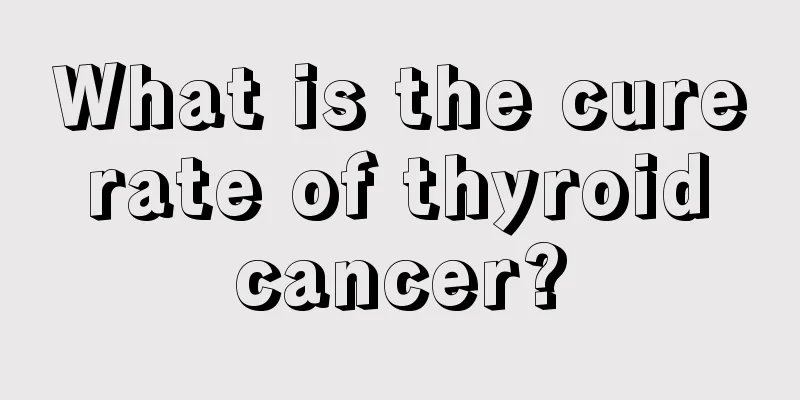How to treat vitamin D deficiency tetany

|
Vitamin D deficiency tetany is a relatively common disease. Therefore, it is necessary for us to understand the relevant treatment methods of vitamin D deficiency tetany. So how to treat vitamin D deficiency tetany? What are the treatments for vitamin D deficiency tetany? Next, this article will give you a detailed introduction. Vitamin D deficiency tetany is also known as rickets, hypocalcemic seizures or infantile tetany. Due to vitamin D deficiency and insufficient compensatory function of the parathyroid gland, serum calcium ions are reduced, neuromuscular excitability is increased, and convulsions, hand and foot muscle cramps or laryngeal spasms occur. It is more common in children under 2 years old. How is vitamin D deficiency tetany treated? The treatment principle of this disease is to first control convulsions, relieve laryngeal spasm, quickly supplement calcium to quickly raise blood calcium to normal, and then give vitamin D to restore blood calcium and phosphorus metabolism to normal. 1. First aid treatment Sedatives and antispasmodics can be used to control convulsions. The first choice is diazepam, 0.1-0.3 mg/kg each time, intramuscularly or intravenously, or phenobarbital, 5-7 mg/kg each time, intramuscularly, or 10% chloral hydrate, 40-50 mg/kg each time, retention enema. In case of laryngeal spasm, the tongue should be pulled out of the mouth first, artificial respiration or pressurized oxygen should be performed, and endotracheal intubation should be performed if necessary. Calcium therapy For patients with convulsions or laryngeal spasm, 5-10 ml (or 1 ml/kg) of 10% calcium gluconate plus 10-20 ml of 10% glucose solution can be given by intravenous drip, or slowly injected intravenously (over 10 minutes). For severe cases, this can be repeated 2-3 times a day until the convulsions stop and oral calcium preparations can be taken. For mild cases, or after convulsions and laryngeal spasm are controlled, take 10% calcium chloride orally first, 5 to 10 ml each time, diluted in 3 to 5 times sugar water. 3 times a day. Calcium chloride has the effect of acidifying the blood, causing the calcium ion concentration to increase rapidly, but it should not be taken for a long time to prevent hyperchloremia. Therefore, after 3 to 5 days, it should be changed to active calcium, such as Gaitanli or calcium gluconate for oral administration. 3. Vitamin D treatment After taking calcium supplements, vitamin D should be given at the same time, 50ug~125ug (2000~5000IU) orally per day. For severe cases, vitamin D or vitamin D3 can be injected intramuscularly. The usage is the same as rickets. After one month, change to a preventive dose. The above is an introduction to how to treat vitamin D deficiency tetany. I believe that after reading the above introduction, you already know how to treat vitamin D deficiency tetany. From the above introduction, we can know that infants and young children are at high risk of vitamin D deficiency tetany, which is mainly caused by vitamin D deficiency. Therefore, the key to treating this disease is to supplement vitamin D. |
<<: How to remove pigmentation from eczema
>>: What happens if digestive enzymes are deficient
Recommend
The difference between lotion and cream
Lotion, cream and lotion are both rich in common ...
How to clean pipe scale
Now every household has pipes, even outside. Espe...
My stomach hurts every time I urinate
Nowadays, modern living standards have been great...
Why is my right eye twitching? Beware of these reasons
Many people think that the right eye twitching is...
How to treat pustular rash
Neonatal pustular rash is a very common skin dise...
Side effects of Shouwu powder
Shouwu powder is powder made from Polygonum multi...
What to do if the incision does not heal after colon cancer surgery
What should I do if the incision does not heal af...
What does the fetal lower abdominal movement mean
If the fetus moves in the lower abdomen, it means...
Is there any relationship between pericardial effusion and drinking water?
Pericardial effusion can also be called pericardi...
Where is the best hospital for treating gastric cancer
How to choose a hospital is a question that many ...
Can I eat grapes with shrimps?
Shrimp is a very popular ingredient in our life. ...
Can canine distemper be transmitted to humans
Pollution in modern society is becoming more and ...
What to do about heart failure? Common knowledge about nursing care for heart failure
Heart failure is considered a relatively serious ...
Does tooth enamel have the ability to regenerate?
Tooth enamel is easily worn out, and many problem...
Three dietary therapies for patients with gallbladder cancer after surgery
Gallbladder cancer patients suffer severe damage ...









